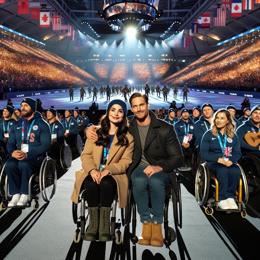Image created by AI
DAZN's Bold Move: R18 Billion for Free Streaming of FIFA Club World Cup 2025
London-based sports streaming giant DAZN has made an unprecedented move in the world of sports broadcasting by acquiring the exclusive rights to the 2025 FIFA Club World Cup for a staggering R18 billion. In a surprising twist, DAZN announced that it will offer live streaming of the entire tournament at no cost from June 15 to July 13, 2025. This event is significant as it includes Mamelodi Sundowns, a club representing South Africa.
FIFA President Gianni Infantino unveiled the partnership with DAZN, highlighting their commitment to making top-tier club football accessible globally. “This partnership ensures that every football enthusiast worldwide can watch the top 32 clubs battle it out to become the first 'FIFA Club World Champions' without any barriers,” said Infantino.
The 2025 edition marks the inaugural tournament under a revamped format, mirroring the 32-team structure akin to the FIFA World Cup. Historically, the Club World Cup saw only six to eight teams participating. This expansion is an effort to make the tournament more inclusive and competitive, reflecting a true global footprint.
Infantino emphasized that the new format aims to elevate the status of club football globally, making it the most accessible tournament in its history. This strategic move could reshape how global sports events are viewed, setting a precedent for accessibility and inclusiveness.
Amidst this significant broadcasting development, South Africa is in the midst of reformulating its Visual and Audiovisual policy. The country is debating which national sports events should be broadcasted for free and who should shoulder the cost of these rights. This discussion is pivotal as the South African Broadcasting Corporation (SABC) seeks new funding models. Communications Minister Solly Malatsi's recent withdrawal of a contentious SABC Bill, which proposed delayed solutions to funding mechanisms, has sparked political friction. The bill's withdrawal, criticized by major political figures, including President Cyril Ramaphosa, underscored the complexities of media legislation in the country.
DAZN's acquisition could influence South Africa's ongoing policy formation, particularly in terms of sublicensing content to free-to-air broadcasters, which could potentially bond with SABC's objectives.
As this dynamic situation unfolds, the global sports broadcasting landscape is set to change fundamentally, making premium sports events more accessible to fans worldwide, potentially influencing broader media policies and funding models in broadcasting.










